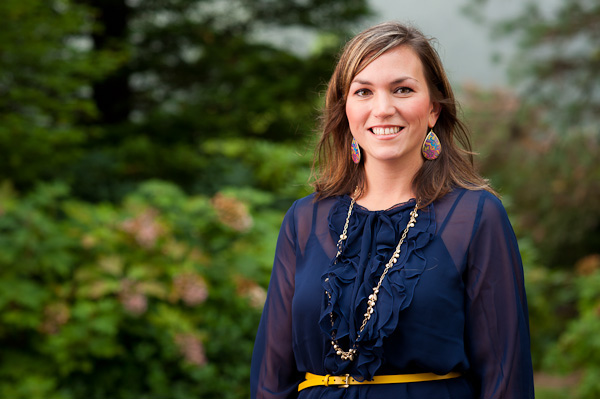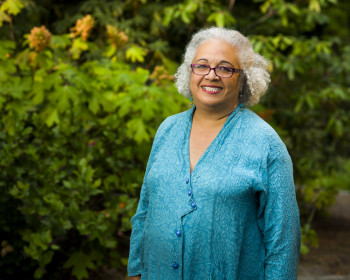Lewis & Clark Adopts Single-Use Plastic Reduction Policy
Open gallery

In an effort to eliminate waste and reduce reliance on products containing fossil fuels, Lewis & Clark developed a campus-wide policy to reduce single-use plastic.
Starting this month, items such as plastic bottled beverages, cutlery, cups, and straws will be phased out of campus vending machines, bookstores, and dining areas. This policy was endorsed by the Lewis & Clark Sustainability Council (LCSC) and Executive Council and reflects feedback received from stakeholders across the campus.
Below, Director of Sustainability Amy Dvorak answers some commonly asked questions about the new policy.
How did this initiative get started?
Last year, the LCSC decided we should consider plastIc as a health and environmental problem. Americans discard about 2.5 million plastic bottles every hour!
We also learned that China began refusing to accept some recyclables, in particular plastic, from countries around the world including the U.S. This new perspective along with the changes in the Chinese market prompted us to look at our own plastic use.
When does the policy go into effect?
These changes will be implemented in preparation for fall semester 2018. It’s a complex process, so we will not see an immediate elimination of all plastics this year. For example, there will be events or conferences with single-use items, and we’ll try to work those issues out over time. Starting this month and throughout the summer, we will: begin removing plastics, install water filling stations, and prepare communication materials for incoming students.
Are we going to start using compostable plastics?
No. Portland no longer permits disposal of compostable or biodegradable plastics in the composting waste stream.
The City of Portland offers this answer the question, “What’s the most sustainable type of disposable cups, cutlery and plates I can buy?”:
Reusable dishware–even if only offered to customers for on-site use – is the best environmental choice. Learn why, and how to make the switch.
For disposables, look for products made with recycled content. The higher the percentage of recycled content, the better.
Paper, cardboard, and plastic disposable ware with recycled content are becoming easier to find. Look for labels that say “made with recycled content” or “30% [or more] post-consumer recycled content.”
*Note: Since March 1, 2015, no disposable ware – even if it says compostable – is allowed in Portland’s city wide commercial or residential food scrap collection.
Will I have the same options for beverages I have now?
Soda, tea, and juice in metal or glass containers will be available in vending machines. Water will not be available in vending machines, but we’ll add more filling stations and drink dispensers with water and free or significantly discounted reusable containers.
Where are the refillable water stations and where can I buy reusable water bottles on campus?
Stop by my office (second floor of Templeton near south entrance) to get a free water bottle! We will also hand out reusable water bottles at NEO, Pio Fair, and the Wellness Fair. The bookstore is also a great option for several types of reusable containers.
Water bottle filling locations (in wall and tabletop dispenser) are located across campus. We will be completing a full survey of the locations including new instalations this summer and sharing it with the community.
Are drinks going to be more expensive?
Prices will stay the same and I’m working with campus partners to add more affordable options.
Do you think this policy can make a difference globally?
We’re not going to solve this issue on our little campus, but it’s more about offering the opportunity to be plastic free so that as we go off campus our community members take these behaviors and expectations with them. In effect, LC is trying to be part of a positive cultural shift.
More The Source Stories
email source@lclark.edu

